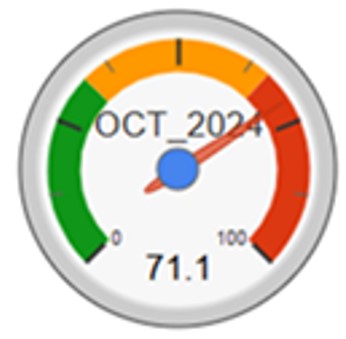The Amboseli Conservation Program (ACP) on Wednesday 22nd March 2017 launched an all-digital data collection platform that Resource Assessors (RAs) will use to collect and transmit both plant and animal data in the Amboseli ecosystem.
The platform, called ODK (Open Data Kit), will help generate the first comprehensive ecosystem wide data set of ground sampling for wildlife, livestock, plants, settlement mapping, market surveys and drought conditions.
ODK is a free and highly customizable open source set of tools which simplifies collecting data in the field and aggregates the information on a remote server. Using the platform, ACP can now upload monitoring data onto a tablet in the field. The tablet also logs GPS location, date and time and takes digital pictures. The data is transmitted through the cloud for instant retrieval, updating and analysis on any database. The ACP database has integrated an analysis tool developed in R that analyses and generates instant results.
The digitization of field data and cloud transmission frees up time for Resource Assessors in the field and data analysts in the office to review the results and communicate the findings to user groups.
“I now wouldn’t need to carry my camera and GPS as the platform incorporates them both.” said an elated Maitumo, a long serving RA for the Amboseli Conservation Program.
The Amboseli Conservation Program (ACP) on Wednesday 22nd March 2017 launched an all-digital data collection platform that Resource Assessors (RAs) will use to collect and transmit both plant and animal data in the Amboseli ecosystem.
The platform, called ODK (Open Data Kit), will help generate the first comprehensive ecosystem wide data set of ground sampling for wildlife, livestock, plants, settlement mapping, market surveys and drought conditions.
ODK is a free and highly customizable open source set of tools which simplifies collecting data in the field and aggregates the information on a remote server. Using the platform, ACP can now upload monitoring data onto a tablet in the field. The tablet also logs GPS location, date and time and takes digital pictures. The data is transmitted through the cloud for instant retrieval, updating and analysis on any database. The ACP database has integrated an analysis tool developed in R that analyses and generates instant results.
The digitization of field data and cloud transmission frees up time for Resource Assessors in the field and data analysts in the office to review the results and communicate the findings to user groups.
“I now wouldn’t need to carry my camera and GPS as the platform incorporates them both.” said an elated Maitumo, a long serving RA for the Amboseli Conservation Program.
The Amboseli Conservation Program (ACP) on Wednesday 22nd March 2017 launched an all-digital data collection platform that Resource Assessors (RAs) will use to collect and transmit both plant and animal data in the Amboseli ecosystem.
The platform, called ODK (Open Data Kit), will help generate the first comprehensive ecosystem wide data set of ground sampling for wildlife, livestock, plants, settlement mapping, market surveys and drought conditions.
ODK is a free and highly customizable open source set of tools which simplifies collecting data in the field and aggregates the information on a remote server. Using the platform, ACP can now upload monitoring data onto a tablet in the field. The tablet also logs GPS location, date and time and takes digital pictures. The data is transmitted through the cloud for instant retrieval, updating and analysis on any database. The ACP database has integrated an analysis tool developed in R that analyses and generates instant results.
The digitization of field data and cloud transmission frees up time for Resource Assessors in the field and data analysts in the office to review the results and communicate the findings to user groups.
“I now wouldn’t need to carry my camera and GPS as the platform incorporates them both.” said an elated Maitumo, a long serving RA for the Amboseli Conservation Program.
The Amboseli Conservation Program (ACP) on Wednesday 22nd March 2017 launched an all-digital data collection platform that Resource Assessors (RAs) will use to collect and transmit both plant and animal data in the Amboseli ecosystem.
The platform, called ODK (Open Data Kit), will help generate the first comprehensive ecosystem wide data set of ground sampling for wildlife, livestock, plants, settlement mapping, market surveys and drought conditions.
ODK is a free and highly customizable open source set of tools which simplifies collecting data in the field and aggregates the information on a remote server. Using the platform, ACP can now upload monitoring data onto a tablet in the field. The tablet also logs GPS location, date and time and takes digital pictures. The data is transmitted through the cloud for instant retrieval, updating and analysis on any database. The ACP database has integrated an analysis tool developed in R that analyses and generates instant results.
The digitization of field data and cloud transmission frees up time for Resource Assessors in the field and data analysts in the office to review the results and communicate the findings to user groups.
“I now wouldn’t need to carry my camera and GPS as the platform incorporates them both.” said an elated Maitumo, a long serving RA for the Amboseli Conservation Program.
For over 50 years, we’ve been pioneering conservation work in Amboseli sustained habitats, livelihoods and resilience through collaboration amid environmental changes, protecting biodiversity.
Current grazing pressure percentage.

Amboseli Conservation Program
P.O Box 15289-00509 or 62844-00200
Nairobi, Kenya.
Tel/Fax: +254 20 891360 / 891751
Email: acc@acc.or.ke
Amboseli Conservation Program
P.O Box 15289-00509 or 62844-00200
Nairobi, Kenya.
Tel/Fax: +254 20 891360 / 891751
Email: acc@acc.or.ke